President’s Panel: IEEE/Computer Society Volunteerism & Membership – Serving Humanity with Technology
Postponed until COMPSAC 2021
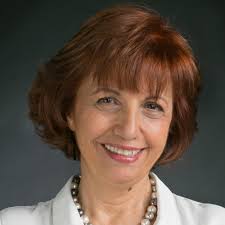 Leila De Floriani is a professor at the University of Maryland, College Park, USA. She has previously been a professor at the University of Genova (Italy), and she has also held positions at the University of Nebraska, Rensselaer Polytechnic Institute, and the Italian National Research Council. De Floriani is the 2020 President of the IEEE Computer Society. She has been a member of the Board of Governors of the IEEE Computer Society (CS) since 2017. She is a Fellow of IEEE, a Fellow of the International Association for Pattern Recognition (IAPR) as well as a Pioneer of the Solid Modeling Association. She is an IEEE Computer Society Golden Core Member and a member of the IEEE Honor Society IEEE-HKN.
Leila De Floriani is a professor at the University of Maryland, College Park, USA. She has previously been a professor at the University of Genova (Italy), and she has also held positions at the University of Nebraska, Rensselaer Polytechnic Institute, and the Italian National Research Council. De Floriani is the 2020 President of the IEEE Computer Society. She has been a member of the Board of Governors of the IEEE Computer Society (CS) since 2017. She is a Fellow of IEEE, a Fellow of the International Association for Pattern Recognition (IAPR) as well as a Pioneer of the Solid Modeling Association. She is an IEEE Computer Society Golden Core Member and a member of the IEEE Honor Society IEEE-HKN.
She has been the editor-in-chief of the IEEE Transactions on Visualization and Computer Graphics (TVCG) from 2015-2018, and served as an associate editor for IEEE TVCG from 2004-2008. De Floriani is currently an associate editor of ACM Transactions on Spatial Algorithms and Systems, GeoInformatica, and Graphical Models. She has served on the program committees of over 150 leading international conferences, including several IEEE conferences, and has contributed to many conferences in a leadership capacity.
De Floriani has authored over 300 peer-reviewed scientific publications in data visualization, geospatial data representation and processing, computer graphics, geometric modeling, shape analysis and understanding, garnering several best paper awards and invitations as a keynote speaker. Her research has been funded by numerous national and international agencies, including the European Commission and the National Science Foundation.
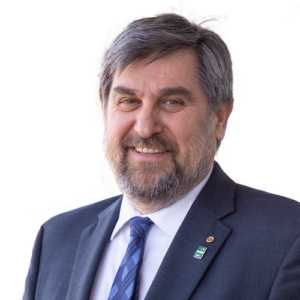 Dejan S. Milojicic is an established researcher with a full career in industry, and a long-term IEEE Computer Society volunteer. As an Computer Society Board of Governors member, he participated in developing the Computer Society 2011 Strategic Plan. He is the founding editor in chief of Computing Now and an IEEE Internet Computing editorial board member. He was appointed first Special Technical Communities chair, and served as past chair of the Computer Society Technical Committee on Operating Systems and on many program committees (ICDCS, CLOUD, and EDOC, among others). An IEEE-CS, ACM, and Usenix member for more than 20 years, Milojicic is an IEEE Fellow, Computer Society Golden Core Member, and ACM Distinguished Engineer. He has received an Computer Society Outstanding Contribution award.
Dejan S. Milojicic is an established researcher with a full career in industry, and a long-term IEEE Computer Society volunteer. As an Computer Society Board of Governors member, he participated in developing the Computer Society 2011 Strategic Plan. He is the founding editor in chief of Computing Now and an IEEE Internet Computing editorial board member. He was appointed first Special Technical Communities chair, and served as past chair of the Computer Society Technical Committee on Operating Systems and on many program committees (ICDCS, CLOUD, and EDOC, among others). An IEEE-CS, ACM, and Usenix member for more than 20 years, Milojicic is an IEEE Fellow, Computer Society Golden Core Member, and ACM Distinguished Engineer. He has received an Computer Society Outstanding Contribution award.
At HP Labs since 1998, Milojicic is a senior researcher and managing director of the Open Cirrus Cloud Computing Testbed. Previously, he was with OSF Research Institute in Cambridge, Massachusetts, and Institute Mihajlo Pupin in Belgrade, Serbia. He teaches cloud management at San Jose State University, California.
Milojicic received a PhD from Kaiserslautern University, Germany. He has served on six thesis committees and guided 40 interns. He has published two books, more than 120 papers, and been awarded 11 patents and 22 patent applications.
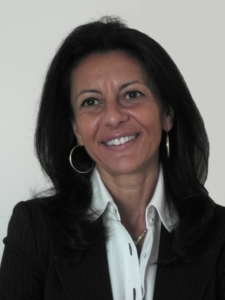 Cecilia Metra is the President 2019 of the IEEE Computer Society. She is a full professor and the Deputy-President of the Engineering School at the University of Bologna, Italy, where she has worked since 1991, and from which she received a PhD in electronic engineering and computer science. In 2002, she was visiting faculty consultant for Intel Corporation.
Cecilia Metra is the President 2019 of the IEEE Computer Society. She is a full professor and the Deputy-President of the Engineering School at the University of Bologna, Italy, where she has worked since 1991, and from which she received a PhD in electronic engineering and computer science. In 2002, she was visiting faculty consultant for Intel Corporation.
She was a member of the IEEE Computer Society Board of Governors (2013-2017), the Vice President of Member and Geographic Activities 2017, and the Vice-President for Technical and Conference Activities 2014.
She is Editor in Chief of the IEEE Transactions on Emerging Topics in Computing (2018, 2020) and she was Editor in Chief of Computing Now (2013-2016) and Associate Editor in Chief of IEEE Transactions on Computers (2007-2012). She is on the IEEE The Institute Advisory Board as well as on editorial boards of several journals, including IEEE Transactions on Computers, IEEE Design&Test, and the Journal of Electronic Testing.
She contributed to numerous IEEE international conferences, symposia, workshops as general/program chair/co-chair (14 times), vice-general/program chair/co-chair (6 times), topic/track chair (34 times), and technical program committee member (90+ times). She has published extensively on design for test and reliability of integrated circuits and systems. Her research has received public and private funding (from companies such as Intel Corporation, STMicroelectronics, etc.) at national and international levels.
She is an IEEE Fellow, IEEE Computer Society Golden Core Member, and a member of the IEEE Honor Society IEEE-HKN. She has received two Meritorious Service Awards and five Certificates of Appreciation from the IEEE Computer Society.
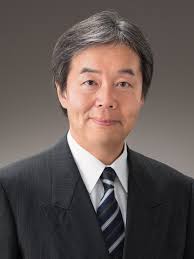 Hironori Kasahara is a professor in the Department of Computer Science and Engineering at Waseda University. He is an IEEE Fellow, an IPSJ Fellow, a Golden Core Member of the IEEE Computer Society, a professional member of the IEEE Eta Kappa Nu, and a member of the Engineering Academy of Japan and the Science Council of Japan. He received a PhD in 1985 from Waseda University, joined its faculty in 1986, and has been a professor of computer science since 1997 and a director of the Advanced Multicore Research Institute since 2004. He was a visiting scholar at the University of California, Berkeley, and the University of Illinois at Urbana–Champaign’s Center for Supercomputing R&D.
Hironori Kasahara is a professor in the Department of Computer Science and Engineering at Waseda University. He is an IEEE Fellow, an IPSJ Fellow, a Golden Core Member of the IEEE Computer Society, a professional member of the IEEE Eta Kappa Nu, and a member of the Engineering Academy of Japan and the Science Council of Japan. He received a PhD in 1985 from Waseda University, joined its faculty in 1986, and has been a professor of computer science since 1997 and a director of the Advanced Multicore Research Institute since 2004. He was a visiting scholar at the University of California, Berkeley, and the University of Illinois at Urbana–Champaign’s Center for Supercomputing R&D.
He has served as a chair or member of 250 society and government committees, including a member of the CS Board of Governors and Executive Committee; chair of CS Planing Committee, Constitution & Bylaws Committee, Multicore STC, and CS Japan chapter; associate editor of IEEE Transactions on Computers; vice PC chair of the 1996 ENIAC 50th Anniversary International Conference on Supercomputing; general chair of LCPC; PC member of SC, PACT, and ASPLOS; board member of IEEE Tokyo section; and member of the Earth Simulator and K supercomputer committees. Kasahara received the CS Golden Core Member Award, IFAC World Congress Young Author Prize, Sakai Special Research Award, and the Japanese Minister’s Science and Technology Prize. He led Japanese national projects on parallelizing compilers and embedded multicores, and has presented 215 papers, 155 invited talks, and 30 patents. His research has appeared in 557 newspaper and web articles.
 Jean-Luc Gaudiot is Distinguished Professor of Electrical Engineering and Computer Science at the University of California, Irvine (UCI). He is a Fellow of IEEE and AAAS, and a Professional Member of Eta Kappa Nu. He has worked in a leadership position for the IEEE and the IEEE Computer Society for many years, serving as vice President of the Educations Board and of the Publications Board, and 2017 President.
Jean-Luc Gaudiot is Distinguished Professor of Electrical Engineering and Computer Science at the University of California, Irvine (UCI). He is a Fellow of IEEE and AAAS, and a Professional Member of Eta Kappa Nu. He has worked in a leadership position for the IEEE and the IEEE Computer Society for many years, serving as vice President of the Educations Board and of the Publications Board, and 2017 President.
At UCI, he was Department Chair for 6 years during which the USNWR® rankings rose from 42 to 28 (46 to 36 for the EE program) and 12 faculty members were recruited. Prior, he was Professor of Electrical Engineering at the University of Southern California (USC).
He frequently acts as consultant to companies that design high-performance computer architectures and as expert in patent infringement and product liability cases. His research interests include the architecture of multiprocessors, a domain in which he has published nearly 300 papers. His research has been sponsored by NSF, DoE, and DARPA, as well as industrial organizations. He received a PhD in Computer Science from University of California, Los Angeles, in 1982.
 John Walz is a 49-year IEEE member and has served the IEEE Computer Society since 1980, most recently as the Computer Society President and Vice President for Technical & Conference Activities.
John Walz is a 49-year IEEE member and has served the IEEE Computer Society since 1980, most recently as the Computer Society President and Vice President for Technical & Conference Activities.
A Senior Consultant at Shreya Business Solutions, Walz retired from Lucent Technologies as a Senior Manager, Quality Strategy. During his more than three-decade-long career in information technology, he gained in-depth experience with software development, managing software, and hardware development. Walz also has extensive experience in implementing process improvement techniques such as Baldrige, ISO 9001, TL 9000, and SEI Capability Maturity Model Integrated (CMMI).
An IEEE Senior Member, Walz was appointed to the IEEE-CS Standards Activities Board and served as Secretary and Chair. He served on the IEEE Conference Publications Committee in 2009-2010. He was a member of the IEEE-CS Awards Committee and served as the Hans Karlsson Award Chair from 2003-2006. He was Planning Chair and Quality Management Study Group Chair for the IEEE-CS Software and Systems Engineering Standard Committee (S2ESC) in 2004, and was part of the IEEE-CS Distinguished Visitor Program. As President, he co-chaired the Industry Practitioners ad hoc of IEEE TAB, and has been appointed to the IEEE Conference Committee in 2013.
Walz is a Golden Core member and recipient of the Distinguished Service and Meritorious Service Award. Previously, he was Local Arrangements Chair for Computer Software Applications Conference (COMPSAC) under Dr. Steven Yau’s leadership.
Walz published the “TL 9000 Quality Management Standard for Telecommunications” chapter of The ISO 9000 Handbook (4th ed., McGraw-Hill). He is the co-author with S. Kathy Land on Practical CMMI Software Process Documentation- Using IEEE Software Engineering Standards (CS Press/Wiley, 2005), Practical Support for ISO 9001 Software Project Documentation: Using IEEE Software Engineering Standards (2006), and IEEE Software Engineering Standards Support for ISO 9001: Getting Your Organization Started (2007). He co-authored Practical Support for Lean Six Sigma Software Process Definition Using IEEE Software Engineering Standards (2008) with Land and Douglas B. Smith. He co-authored “Time to Push the Cloud,” IT Professional 2010 with D. A. Grier.
Walz earned his bachelor’s and master’s degrees in electrical engineering from Ohio State University.
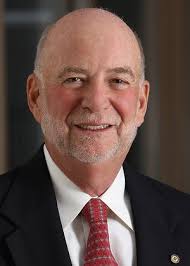 Sorel Reisman directs the international, higher education consortium, Merlot, and is a professor of information systems at California State University, Fullerton. He has held management positions at IBM, Toshiba, and EMI. He is an IEEE senior member and is the vice president in charge of the Computer Society Publications Board. Reisman has served as vice president of the Electronic Products and Services Board and as a member of the Transformation and Planning and Membership Committees.
Sorel Reisman directs the international, higher education consortium, Merlot, and is a professor of information systems at California State University, Fullerton. He has held management positions at IBM, Toshiba, and EMI. He is an IEEE senior member and is the vice president in charge of the Computer Society Publications Board. Reisman has served as vice president of the Electronic Products and Services Board and as a member of the Transformation and Planning and Membership Committees.
Reisman was a member of the Publications Board; chair of the Magazines Operations Committee; editorial board member for IEEE Software; founding board member of IEEE MultiMedia and IT Professional; and author of the IT Pro column “The Ivory Tower.” He is a member of the IEEE Education Society, Publication Services and Products Board, TAB Periodicals Committee, and a reviewer for Transactions on Education. Reisman has presented or published more than 50 articles and authored the books Multimedia Computing: Preparing for the 21st Century and Electronic Learning Communities—Current Issues and Best Practices. He is an advisory board member of the Merlot African Network and a liaison to the international digital library consortium, GLOBE. Reisman received a BS in electrical engineering and an MA and a PhD in computer applications from the University of Toronto.
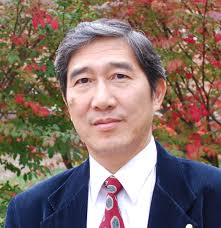 Carl K. Chang is Professor and Chair of the Department of Computer Science at Iowa State University. He received a PhD in computer science from Northwestern University in 1982, and worked for GTE Automatic Electric and Bell Laboratories before joining the University of Illinois at Chicago in 1984. He joined Iowa State University in 2002. Chang has served as President of the IEEE Computer Society (2004), Editor-in-Chief for IEEE Software (1991–1994), Chair of the Magazine Operations Committee, Distinguished Visitor, member of the Board of Governors, Secretary of the Society, Vice President for Press Activities, Vice President and First Vice President for Educational Activities, Chair of the Meetings and Services Committee reporting to the IEEE Board of Directors, before being appointed editor-in-chief of Computer (2007–2010). He is currently editor-in-chief Emeritus of Computer.
Carl K. Chang is Professor and Chair of the Department of Computer Science at Iowa State University. He received a PhD in computer science from Northwestern University in 1982, and worked for GTE Automatic Electric and Bell Laboratories before joining the University of Illinois at Chicago in 1984. He joined Iowa State University in 2002. Chang has served as President of the IEEE Computer Society (2004), Editor-in-Chief for IEEE Software (1991–1994), Chair of the Magazine Operations Committee, Distinguished Visitor, member of the Board of Governors, Secretary of the Society, Vice President for Press Activities, Vice President and First Vice President for Educational Activities, Chair of the Meetings and Services Committee reporting to the IEEE Board of Directors, before being appointed editor-in-chief of Computer (2007–2010). He is currently editor-in-chief Emeritus of Computer.
Chang has received the Computer Society’s Meritorious Service Award, Outstanding Contribution Award, the Golden Core Award, and the IEEE Third Millennium Medal. In 2006 he received the prestigious Marin Drinov Medal from the Bulgarian Academy of Sciences, and was recognized by IBM with the IBM Faculty Award in 2006, 2007 and 2009.
Currently the Chair of the Standing Committee for IEEE International Computer Software and Applications Conference (COMSPAC), Chang serves as the program chair, general chair and chair of steering committee for many conferences. He co-led the model computing curricula task force and provided oversight on the development and production of the Computing Curriculum 2001 Computer Science Final Report. He is primarily responsible for the establishment of the Computer Society’s industry advisory boards, first for IEEE Software in his position as the EIC, and more recently for the Society’s Executive Committee while serving as the EIC for Computer. He has published extensively in software engineering, net-centric computing and successful aging.
Chang is a Fellow of IEEE and AAAS.
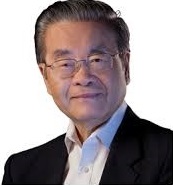 Stephen S. Yau is currently Professor of Computer Science and Engineering at Arizona State University. He was professor and chair of the Computer Science and Engineering Department at Arizona State University in 1994–2001, and the Computer and Information Sciences Department at the University of Florida, Gainesville in 1988–1994. From 1988–1992, he was also the director of the Software Engineering Research Center at the University of Florida. In 1961, he joined Northwestern University, Evanston, Illinois as an Assistant Professor of Electrical Engineering in 1961 and later became Walter P. Murphy Chair Professor and the chair of the Electrical Engineering and Computer Science Department at Northwestern University until 1988.
Stephen S. Yau is currently Professor of Computer Science and Engineering at Arizona State University. He was professor and chair of the Computer Science and Engineering Department at Arizona State University in 1994–2001, and the Computer and Information Sciences Department at the University of Florida, Gainesville in 1988–1994. From 1988–1992, he was also the director of the Software Engineering Research Center at the University of Florida. In 1961, he joined Northwestern University, Evanston, Illinois as an Assistant Professor of Electrical Engineering in 1961 and later became Walter P. Murphy Chair Professor and the chair of the Electrical Engineering and Computer Science Department at Northwestern University until 1988.
In a career spanning more than 40 years, Professor Yau’s research has included various practical and fundamental research issues in distributed computing systems. His early and well-known research contributions were in the areas related to switching circuits, applied graph theory, communication nets, associative memory systems, software reliability and maintainability. Experiences in these research areas helped him effectively focus his research interests on solving both theoretical and practical problems related to software design and development techniques for distributed computing systems. As distributed computing systems became more well-known in the 70’s, Professor Yau advocated that the key to successful and practical utilization of any distributed system is the presence of systematic design and development methods for distributed application software. He investigated the challenges in this emerging area, and made significant contributions.
Professor Yau’s early contributions in design representation and verification of distributed software were fundamental precursors to various other research contributions related to the application of object-oriented techniques in distributed software development. For instance, his work on applying Petri-nets to represent and analyze distributed software was timely and effective because it showed how the inherent concurrency, communication, and encapsulation of object-oriented distributed software can be systematically represented and analyzed to design and develop complex object-oriented distributed software. This work was done even before object-oriented design techniques gained popularity. Professor Yau later focused on the application of object-oriented techniques in developing distributed application software for various environments. His work on software development methods for Autonomous Decentralized Systems (ADS) is noteworthy. He further advanced the state of distributed application software development by applying object-oriented Stephen Yau and Tsutomu Kanaicomponent integration and component customization techniques. These contributions are valuable in that they present practical and easy-to-use methods to develop distributed software by integrating software components from various sources, thereby achieving a high-degree of reusability. Recently Professor Yau has been focusing on the distributed software development issues for ubiquitous (also known as pervasive) computing environments. His current work on Reconfigurable Context-Sensitive Middleware (RCSM) is unique and is helping to advance the state of the art in the emerging discipline of ubiquitous computing. As part of the RCSM research, he has developed methods to develop object-oriented context-sensitive (or context-aware) application software. Context-sensitivity is an important property of most ubiquitous computing applications. His methods allow software developers to easily incorporate context-sensitivity into application designs without significantly changing the development process. Moreover, his contributions show how to allow spontaneous and ad hoc interactions of distributed application software in ubiquitous computing environments.
Professor Yau has published over 175 research papers and mentored more than 90 Ph.D. students and 115 MS students. He is a Fellow of the Institute of Electrical and Electronics Engineers (IEEE) and a Fellow of the American Association for the Advancement of Science. He received numerous awards, including the Louis E. Levy Medal of the Franklin Institute, the Golden Plate Award of the American Academy of Achievement, the Richard E. Merwin Award of the IEEE Computer Society, the IEEE Centennial Medal, the IEEE Third Millennium Medal, the International Federation for Information Processing (IFIP) Silver Core Award, the American Federation of Information-Processing Societies (AFIPS) Special Award, and various special awards of the IEEE and its Computer Society. He was the President of the IEEE Computer Society in 1974–1975 and the American Federation of Information Processing Societies in 1985–1986. He served as a member of the IEEE Board of Directors in 1976–1977 and the Board of Directors of the Computing Research Association in 1996–2000.
He has organized many international scientific conferences. He was the general chair of the National Computer Conference in 1974, the chair of the IEEE Computer Society’s First Annual International Computer Software and Applications Conference in 1977 (COMPSAC ’77), the chair of the Organizing Committee of the 11th World Computer Congress (IFIP Congress 89) in 1989, and the program chair or general chair of a number of workshops and conferences, including the workshops on the Future Trends of Distributed Computing Systems and the International Symposia on Autonomous Decentralized Systems.
He was the editor-in-chief of the Computer magazine of the IEEE Computer Society in 1981–1984, and the October 1984 issue, The State of Computing, organized and edited by him won the best Centennial Magazine Award from the IEEE. He served as an editor of the IEEE Transactions on Software Engineering, and a member of the Editorial Advisory Board of the Journal of Computer Communications.
He received the M.S. and Ph.D. degrees from the University of Illinois, Urbana in 1959 and 1961, and the B.S. degree from the National Taiwan University, Taipei in 1958, all in electrical engineering.
